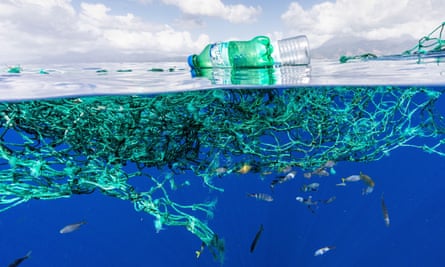As the world grapples with escalating plastic waste, one commonly overlooked contributor is the lightweight, convenient plastic water bottle. While these bottles are a staple in daily life, their environmental footprint is substantial, evidenced by the rising levels of waste found in landfills, oceans, and even in our food chain. In response, there’s a growing global movement to diminish reliance on single-use plastics, with reusable bottles at the forefront of this transformation.
The Shift Towards Reusable Bottles

Reusable water bottles made from materials such as stainless steel, glass, or durable BPA-free plastic are increasingly recognized as essential items, especially in hot climates like that of the Gulf. Not only do they significantly reduce waste, but they also keep water colder for longer periods. The key to widespread adoption lies in accessibility, and refill stations are popping up in various locations including airports, shopping centers, universities, and workplaces, enabling easy refills for those on the go.
Mobile applications, such as Refill and Tap, are further supporting this trend by mapping out locations for convenient refills. In Oman, an increasing number of cafés, gyms, and co-working environments are providing water refill options, which implicitly encourage consumers to alter their buying habits.
Addressing Water Quality Concerns

Many individuals opt for bottled water due to concerns about water quality, even when the tap water is safe to drink. Fortunately, the tides are turning. Modern home filtration systems—ranging from simple charcoal pitchers to advanced reverse osmosis filters—are offering reliable, economical alternatives. These systems empower households to trust their tap water, thereby significantly decreasing their plastic footprint.
Furthermore, various organizations are adapting their practices in line with sustainability goals. Water dispensers and “bring your own bottle” policies are starting to replace the distribution of bottled water in offices, schools, and at events. Some public gatherings have gone so far as to ban plastic bottles entirely, instead providing branded reusable bottles coupled with stations for refilling.
Innovative Alternatives in the Bottle Industry

Innovation is also reshaping the future of bottled beverages. Numerous start-ups are creating biodegradable bottles crafted from materials like seaweed, sugarcane, and starch that decompose naturally rather than lingering in the ecosystem for centuries. Recent studies conducted in Oman’s waters have demonstrated that cassava starch-based bioplastics degrade significantly faster than conventional polyethylene, which opens the door for viable alternatives that can be developed locally.
Oman’s Step Forward in Environmental Conservation
In a bold move towards environmental protection, Oman has implemented a forward-thinking policy aimed at eradicating single-use plastics. This initiative not only reflects the country’s commitment to combat plastic pollution but also aligns with its broader sustainability strategy as part of Oman’s Vision 2040.
In the early 2020s, concerns surrounding plastic waste gained traction in Oman as the Ministry of Environment and Climate Affairs (MECA) singled out the challenges posed by rising plastic debris threatening marine and land environments. By 2021, the urgency of action became apparent, leading the government to acknowledge the detrimental impact on marine ecosystems and waste management systems.
Collaboration within the Gulf Cooperation Council (GCC) has catalyzed momentum for reform in environmental policies. In 2022, Oman unveiled plans to limit the importation, production, and usage of single-use plastics—including plastic bags, cutlery, and various types of packaging. Stakeholders such as the Omani Environment Society and various private enterprises actively contributed to the development of these regulations.
Legislative Measures and Public Awareness
The introduction of awareness campaigns in 2023 aimed to educate the public on the negative effects of plastic pollution and promote sustainable alternatives, including reusable bags and biodegradable packaging. Legislative action followed in June 2024 when the Council of Oman approved a landmark Plastic Waste Reduction Law that prohibited the distribution of single-use plastic bags on a national level. Initial compliance deadlines for retailers to switch to reusable or biodegradable options were set for early 2025.
To enforce this legislation, fines ranging from OM R10 to OM R50 were established for violations as of March 2025. The ban was further broadened in June 2025 to cover additional single-use plastics, including straws, cutlery, and polystyrene containers. The government also created recycling centers and offered incentives to local manufacturers striving to produce sustainable alternatives.
Encouraging early results have emerged from these initiatives, with reports indicating a 35% reduction in the use of plastic bags within three months following enforcement. Environmental organizations have commended Oman for its proactive measures, asserting that such policies are essential for preserving marine ecosystems along the nation’s extensive coastline.
Commitment to Sustainable Development
Looking ahead, Oman is determined to expand its waste reduction initiatives and enhance public education campaigns to ensure ongoing compliance. The government has made it clear that it remains devoted to sustainable development and the conservation of its native resources for future generations.
Oman’s efforts send a strong message: single-use plastics are on the path to obsolescence. Although meaningful change takes time, it is evident that the culture around refilling is gaining traction. Each step towards refilling instead of replacing contributes to a weakening grip of throwaway culture.
The movement towards sustainable practices starts here—with bottles that champion responsibility, conservancy, and a hopeful outlook for our planet’s future. Hydration no longer needs to come encased in plastic; the future is refillable, renewable, and grounded in accountability.



